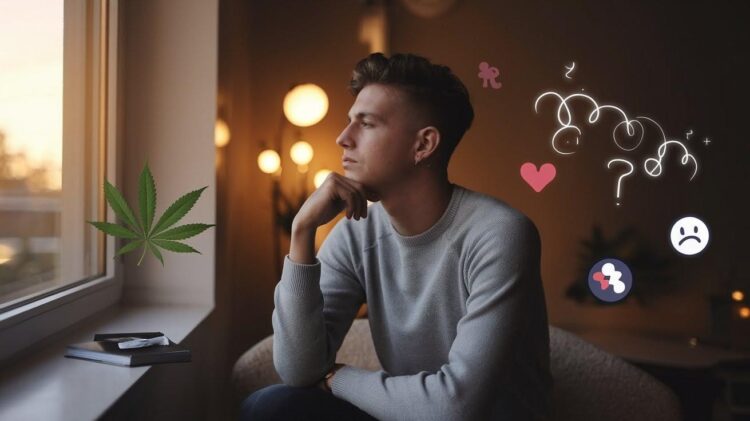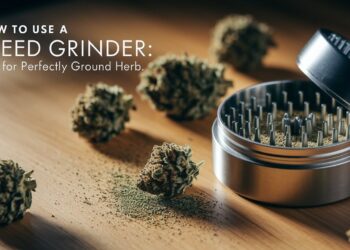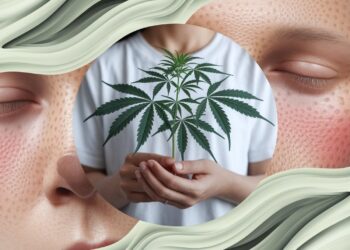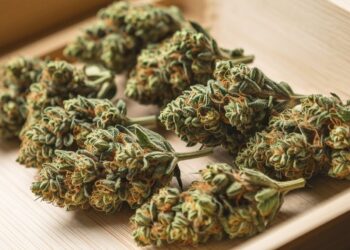Living with borderline personality disorder (BPD) means navigating intense emotions, shifting moods, and difficult relationships, often daily. If you’ve ever wondered whether cannabis could ease these struggles or make them worse, you’re not alone.
This article covers everything you need to know about marijuana and BPD. You’ll learn about potential benefits, serious risks, and what current research says. We’ll also explore how cannabis might interact with BPD medications and give you practical, safety first guidance.
Our insights come from scientific studies and mental health experts, not random Reddit threads or unverified opinions. We’re not here to push cannabis or reject it, we’re here to give you clear, honest information.
You deserve real answers when it comes to your mental health. By the end of this guide, you’ll have a better sense of whether cannabis is worth considering and the right questions to ask your doctor before making any decisions.
Let’s take a close look at the real science behind cannabis and BPD.
Understanding BPD and Its Relevance to Cannabis Safety
Borderline personality disorder affects how your brain processes cannabis. People with BPD face unique risks that most users never consider.
What Is Borderline Personality Disorder (BPD)?

BPD is a mental health condition that affects how you feel about yourself and relate to others. It evokes intense emotions that can fluctuate rapidly throughout the day. The numbers tell an important story:
1.6% of people have BPD, but experts think it could be as high as 5.9% because many cases go undiagnosed. Women make up 75% of all BPD diagnoses. Here’s what matters for cannabis safety: Many people with BPD turn to substances as a way to cope with overwhelming feelings.
These BPD symptoms directly affect how cannabis might impact you: Intense emotional ups and downs happen fast and without warning. You might feel great one hour and terrible the next.
Impulsive behavior is common. This includes making risky choices without fully considering the consequences. Chronic emptiness feels like a hole inside that nothing can fill.
Paranoia and feelings of disconnection from reality often occur during periods of stress.
Fear of being left alone drives many relationship problems.
How Cannabis Interacts with BPD Brain Chemistry
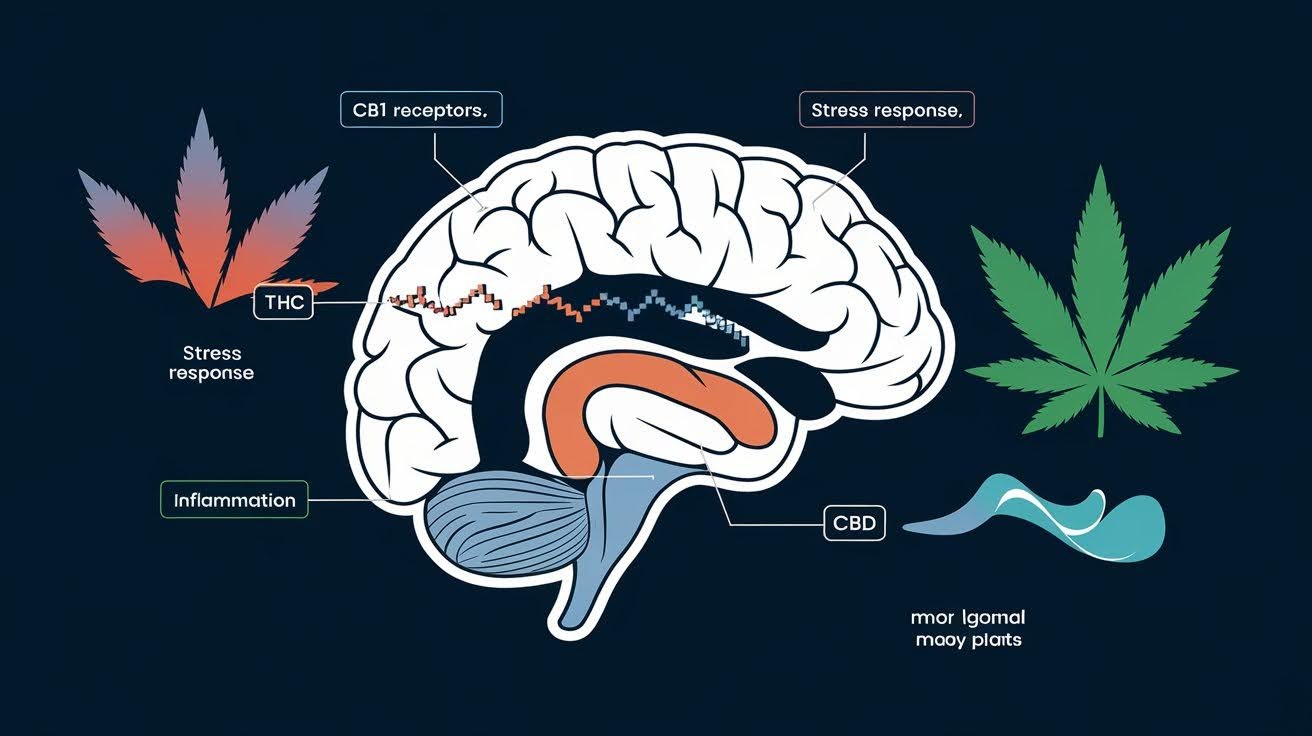
Your brain has CB1 receptors in areas that BPD affects most. These include emotion and decision making centers. BPD changes how your brain handles stress. The stress response system is not functioning normally.
Your amygdala and prefrontal cortex, areas that control fear and thinking, don’t communicate well. Brain inflammation stays high in BPD, which fuels impulsive actions. Research shows lower endocannabinoid levels in people with BPD.
THC gets you high and can make paranoia worse. It might also increase mood swings.
CBD doesn’t cause a high and may help with anxiety and mood stability.
Potential Benefits of Cannabis for BPD Symptoms
Cannabis might help some BPD symptoms while worsening others. The research shows mixed results that depend heavily on individual brain chemistry.
Research Evidence
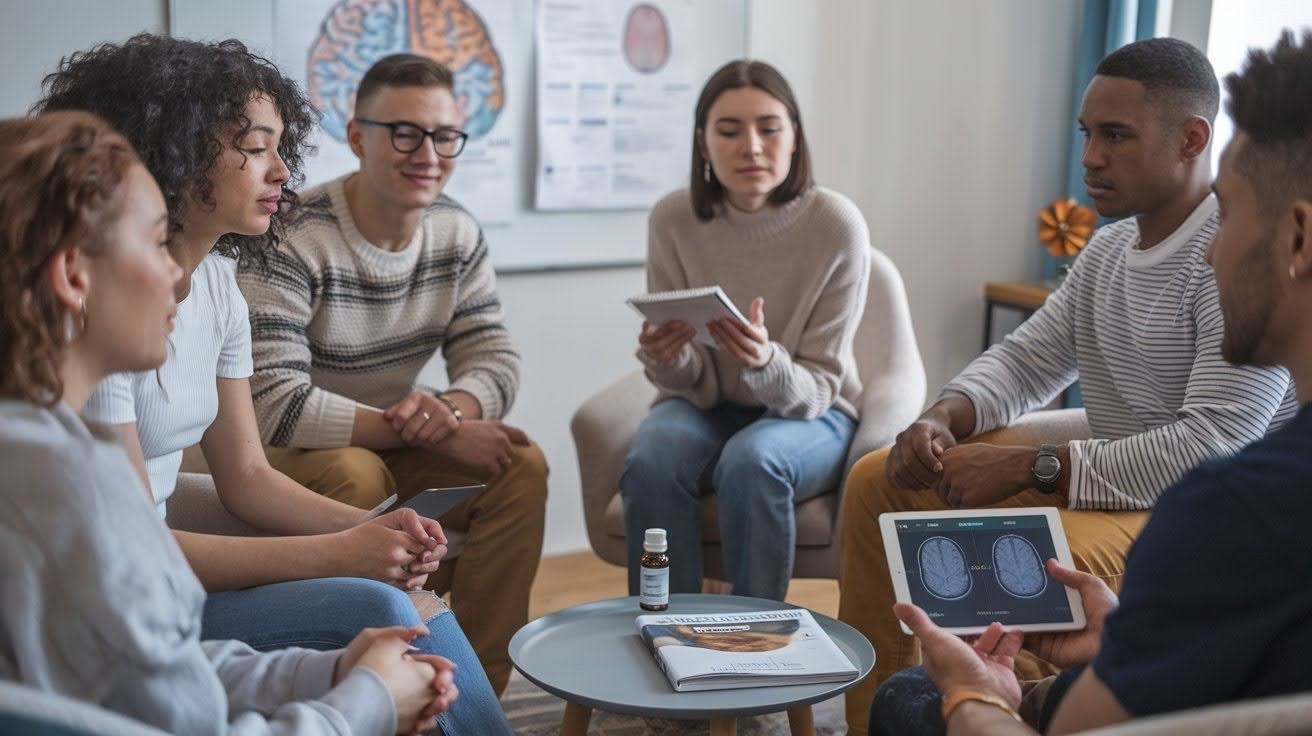
Although limited studies exist, initial results are promising. 2022 Brain Sciences Study Results. This small study looked at 7 people with BPD who used cannabis. Here’s what happened:
Six out of seven participants reported that their symptoms improved. That’s encouraging, but remember this was a tiny study. The improvements included less anxiety, fewer mood swings, and better impulse control. Participants used different mixes of THC and CBD.
No adverse side effects were reported during the month long treatment. However, one month isn’t a very long time to judge safety.
Reported Symptom Improvements

Cannabis might tone down intense feelings. When your emotions feel like a hurricane, some people report that cannabis helps create calm. Emotional storms, those overwhelming moments, may feel less severe.
CBD shows anti anxiety effects in research. This could help with the constant worry many people with BPD experience. Sleep problems are common with BPD. Cannabis users often report sleeping better, though this varies by person.
Some people say cannabis helps them feel less isolated. Social withdrawal becomes less intense. Relationship conflicts might decrease when anxiety levels drop. However, here’s the catch: these benefits come with significant risks that we need to discuss.
Significant Risks and Dangers for BPD Patients
Cannabis can trigger severe psychological crises in people with BPD. These risks go far beyond typical side effects and require serious consideration.
Worsening of Core BPD Symptoms
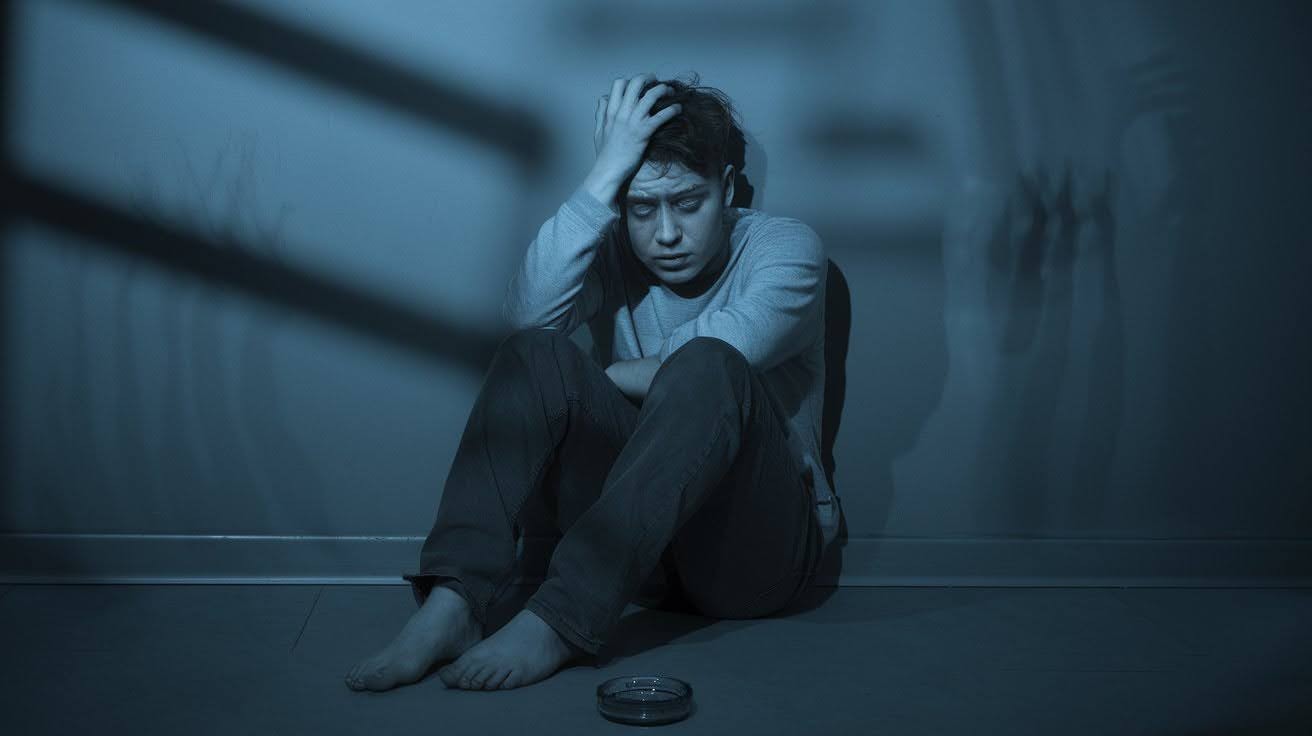
High THC cannabis can backfire badly for people with BPD. Your mood swings may worsen, not improve. THC can make emotions even more unpredictable than they already are.
Paranoia increases with THC use. If you already struggle with trust issues, cannabis could make you feel more suspicious of others. Feeling disconnected from reality called dissociation often gets stronger with cannabis use.
You may feel as though you’re watching your life from outside your body. Poor decision making becomes even riskier. Cannabis affects judgment, which could lead to more impulsive choices. This is the scariest risk of all.
Hallucinations, extreme paranoia, and false beliefs can develop from cannabis use. These symptoms look similar to schizophrenia. A 2020 study found alarming results: people who used cannabis early had double the risk of developing schizophrenia later.
Chronic users faced a six times higher risk. That’s a massive increase. People with BPD face extra danger because they already experience paranoia and mood instability. Cannabis could push these symptoms over the edge.
The line between BPD symptoms and psychosis can blur dangerously with regular cannabis use.
Cannabis Use Disorder (CUD) and BPD
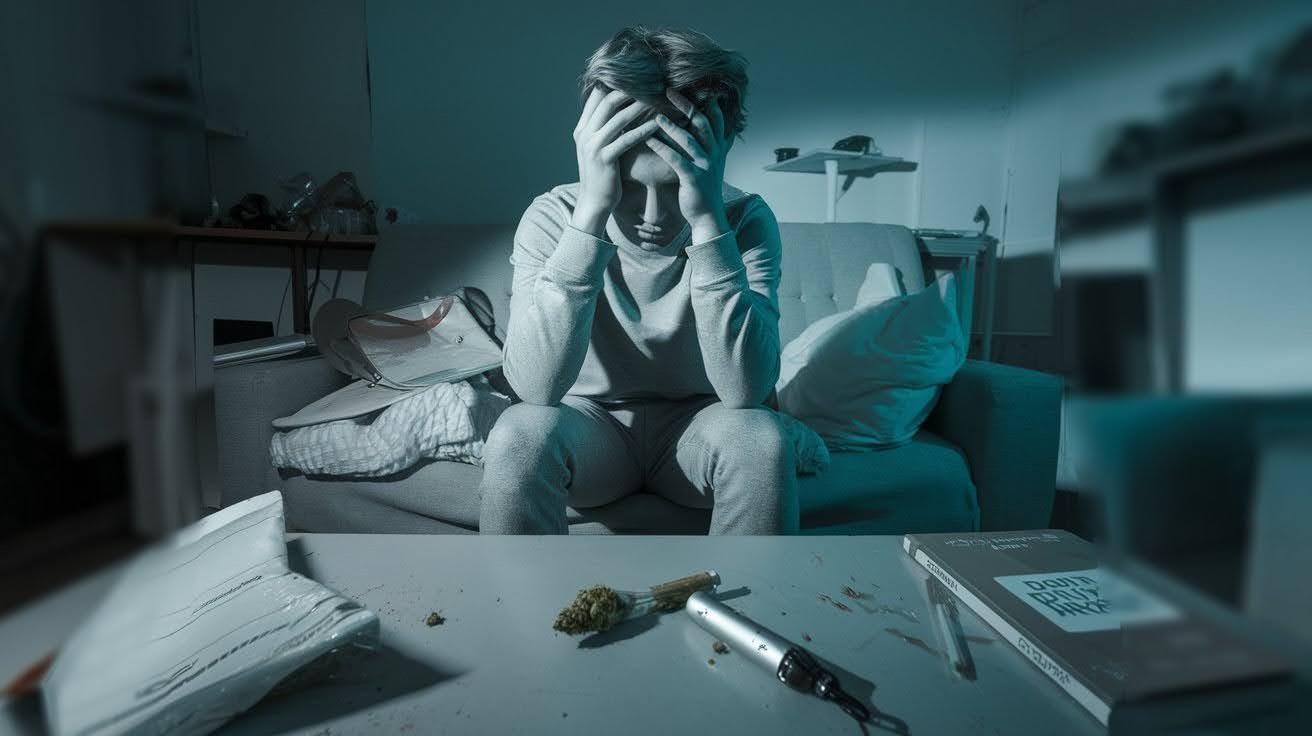
People with BPD get addicted to cannabis more often than others. A 2019 study confirmed this scary truth: BPD patients develop cannabis use disorder at much higher rates.
Your impulsive nature makes addiction more likely. When something feels good in the moment, BPD makes it hard to think about long term consequences. Self medication may seem like a solution, but it creates a bigger problem. You’re covering up symptoms, not fixing them.
Cannabis messes with your memory and thinking. This makes therapy much harder. DBT and other proven treatments work best when your mind is clear and focused. Cannabis clouds your ability to learn new coping skills.
Therapeutic progress slows down or stops completely when used regularly.
Real World Case Study Evidence

One person’s story illustrates the dangers that can arise. Paranoia grew slowly at first, then exploded into full blown terror. Every day, situations felt threatening. Voices started talking when no one was there. The person believed others were plotting against them.
Identity disappeared. They couldn’t recognize themselves in mirrors or feel a sense of connection to their bodies. Medical help became necessary when the psychosis wouldn’t stop.
Complete recovery happened only after quitting cannabis entirely. The symptoms faded once THC left their system. This isn’t rare it’s a real risk you face.
Critical Safety Considerations and Risk Factors
BPD patients face life threatening risks with cannabis use. These specific warning signs and safety factors could prevent a mental health emergency.
High Risk Profiles for BPD Patients
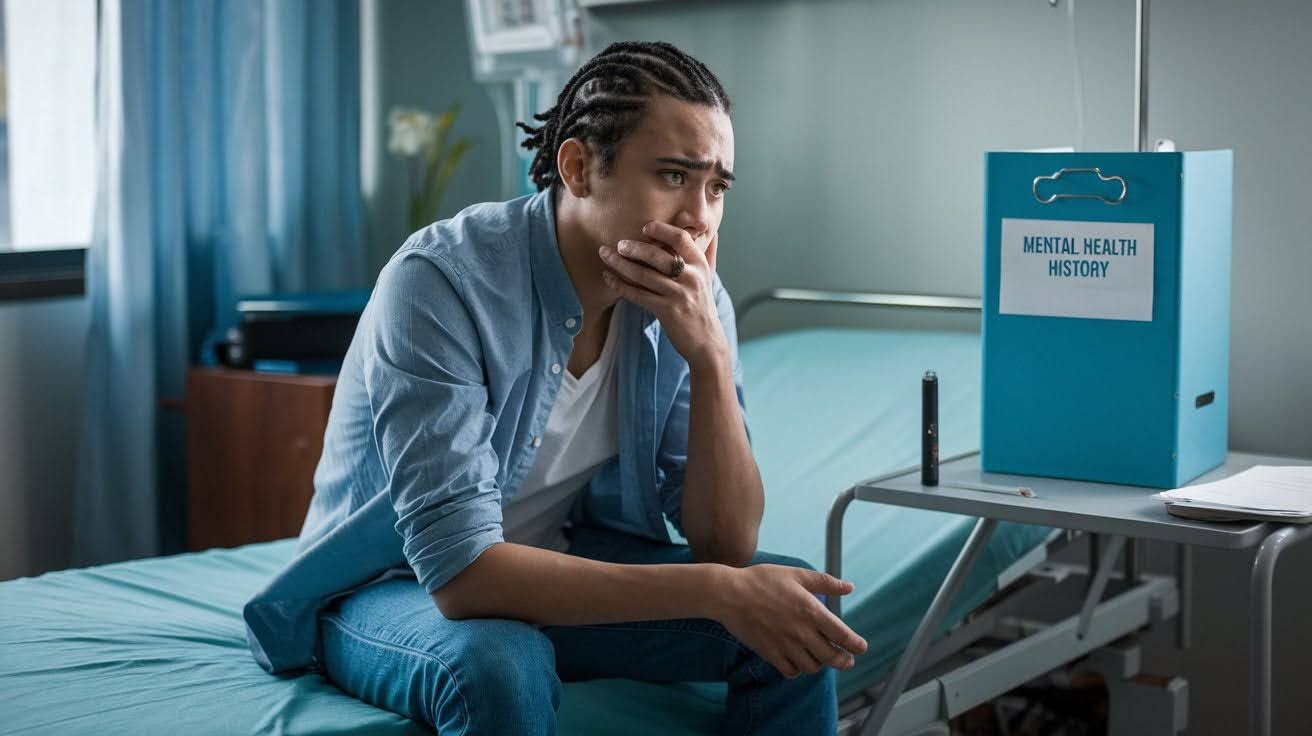
When Cannabis Is Particularly Dangerous. Some people face much higher risks than others. If you’ve had psychosis before even mild episodes cannabis could trigger it again. Your brain already showed it’s vulnerable.
Age matters hugely. If you’re under 25, your brain is still growing. Cannabis can mess with this development permanently. Past addiction problems make cannabis addiction more likely. Your brain has already learned addictive patterns.
Severe BPD symptoms mean you’re already struggling. Cannabis often makes things worse, not better. Recent crisis episodes like suicide attempts or hospitalizations mean your mental state is fragile. This isn’t the time to experiment.
Research Limitations and Unknowns
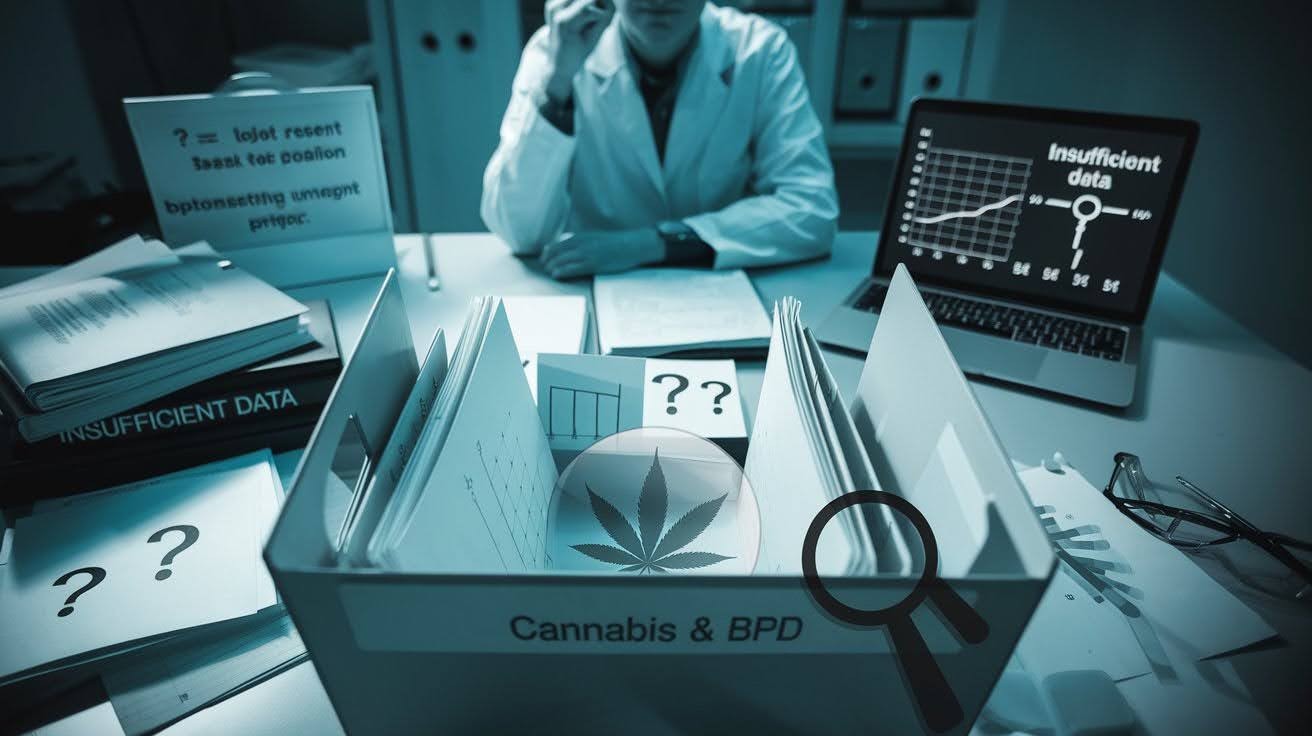
Current Knowledge Gaps. We don’t know nearly enough about cannabis and BPD. Study sizes are tiny. The 2022 study only examined seven people. You can’t base major decisions on such small numbers.
No long term safety data exist for patients with BPD specifically. We don’t know what happens after years of use. Dosing guidelines don’t exist. How much is safe? How often? Nobody knows for sure.
BPD progression effects remain a mystery. Does cannabis slow recovery? Speed it up? We don’t have answers. You’re experimenting on yourself with incomplete information.
Making Safe Decisions About Cannabis and BPD
Your mental health stability depends on informed cannabis decisions. Here’s how to weigh the serious risks against potential benefits responsibly.
When Medical Cannabis Might Be Considered
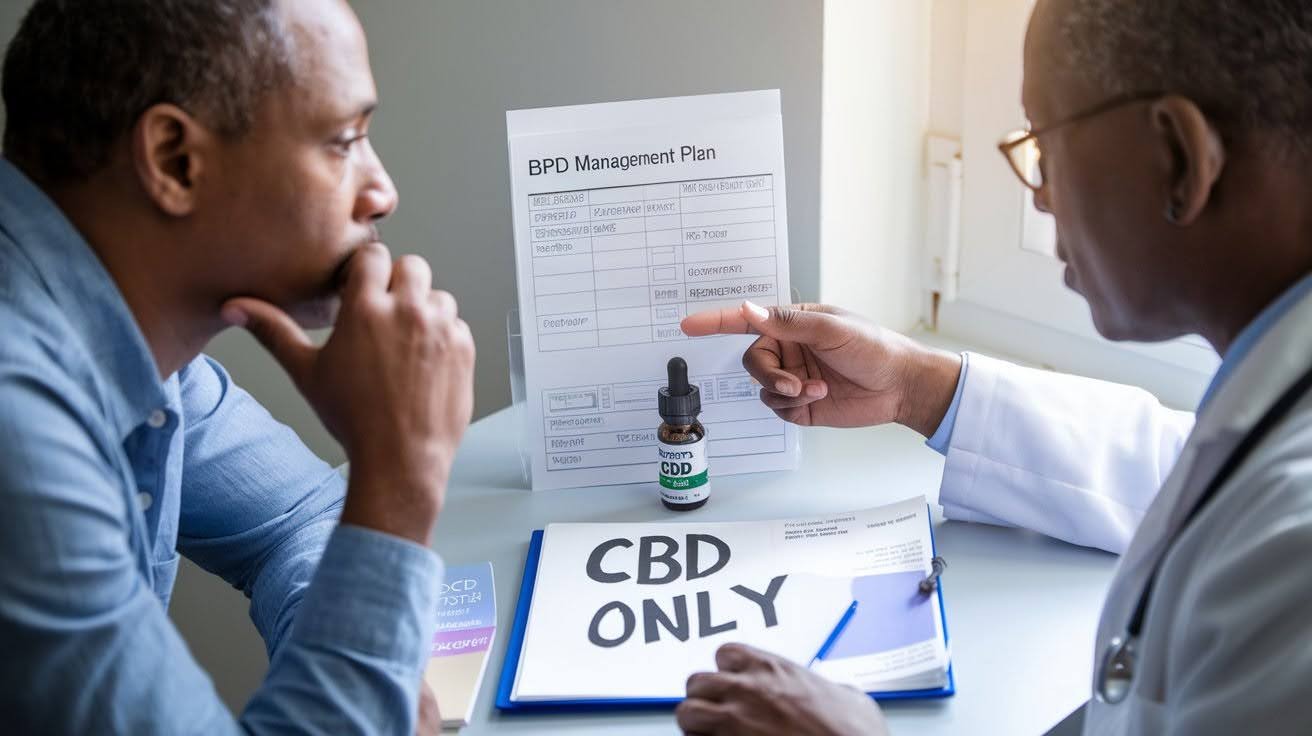
Medical cannabis isn’t for everyone with BPD. Consider it only if nothing else works and a doctor closely monitors you. This means trying proven treatments for years first.
High CBD with very low THC is what researchers suggest. CBD might help without the dangerous high from THC. Cannabis can never replace your primary treatment. It might work alongside DBT or therapy, but never instead of them.
Close monitoring is required. Your doctor needs to monitor for adverse reactions at every step.
Evidence Based Alternatives
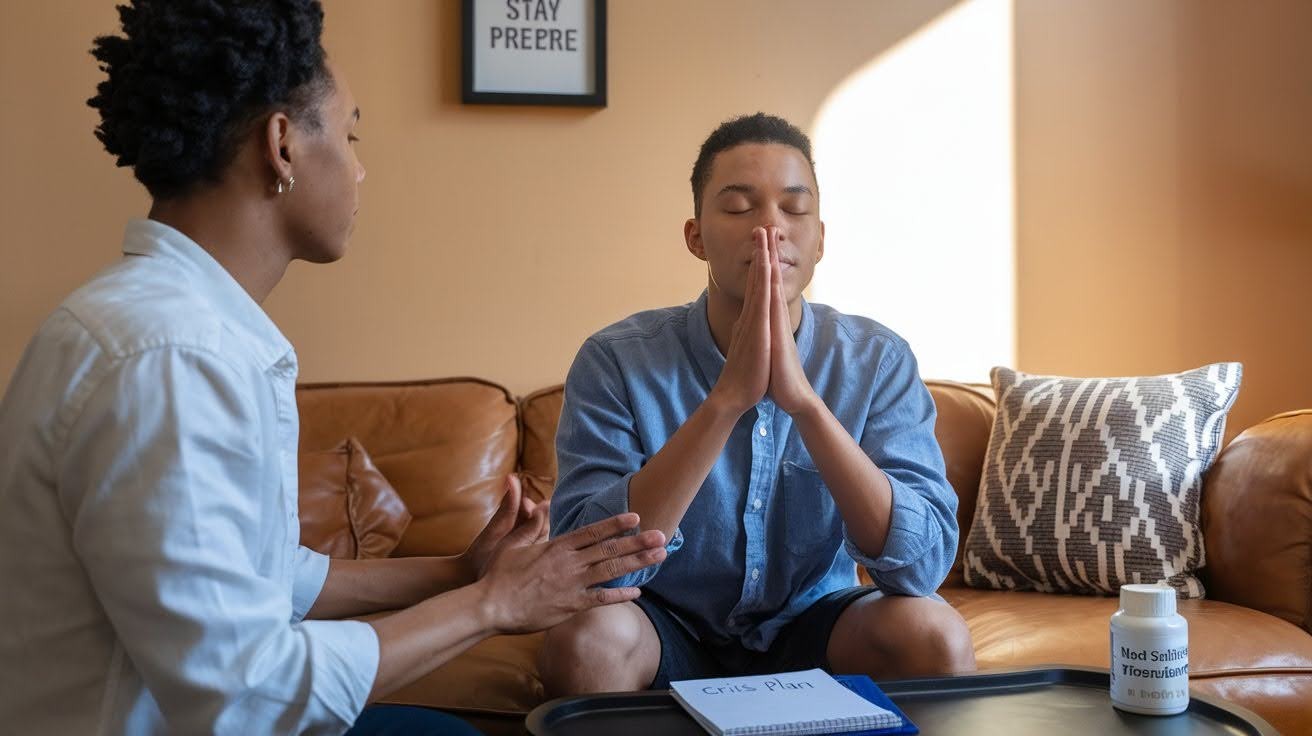
DBT is more effective than any other treatment for BPD. It’s the gold standard treatment for good reason. Mindfulness and meditation help without any risks. These skills take practice but create lasting change.
Crisis intervention and safety planning can help you stay alive during tough times. Having a plan saves lives. Psychiatric medications under doctor care can stabilize mood swings safely.
Safety Recommendations
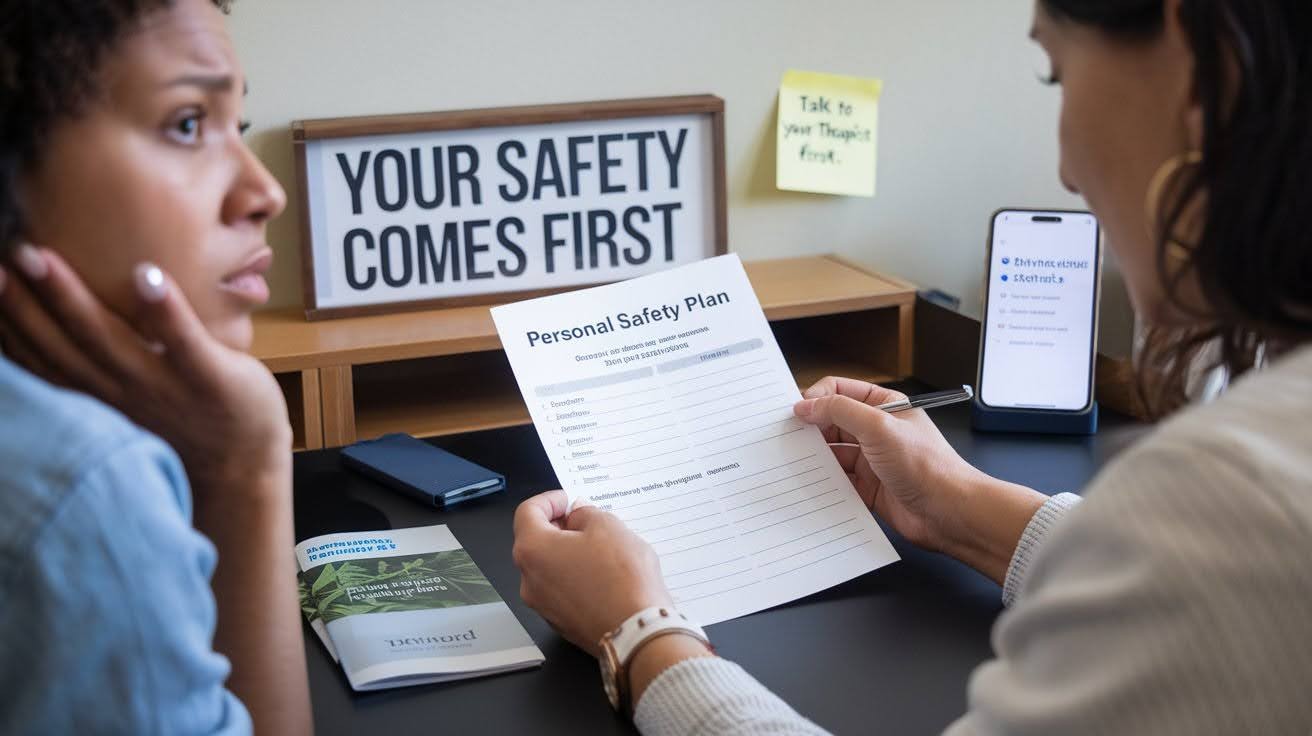
Talk to your mental health team first. Never make this decision alone. Avoid street cannabis altogether. You can’t control what’s in it or its strength. Have a safety plan ready in case cannabis makes things worse. Know who to call and what to do.
Keep seeing your therapist no matter what you decide about cannabis. Legal medical programs only if your state has them and your doctor agrees. Your safety comes first, always.
Bottom Line: Is Weed Safe for BPD?
The answer isn’t simple, and your safety depends on honesty. Here’s the straightforward truth about cannabis risks for people with BPD.
Risk Benefit Analysis

The honest answer? Probably not safe for most people with BPD. Potential benefits are weak. We have a small study with seven participants. That’s not enough proof.
Risks are real and scary. Psychosis, addiction, and worse BPD symptoms happen often.
You face higher risks than people without BPD. Your brain is already vulnerable. Cannabis often makes BPD worse, not better. Mood swings, paranoia, and impulsive behavior can all increase.
Expert Consensus
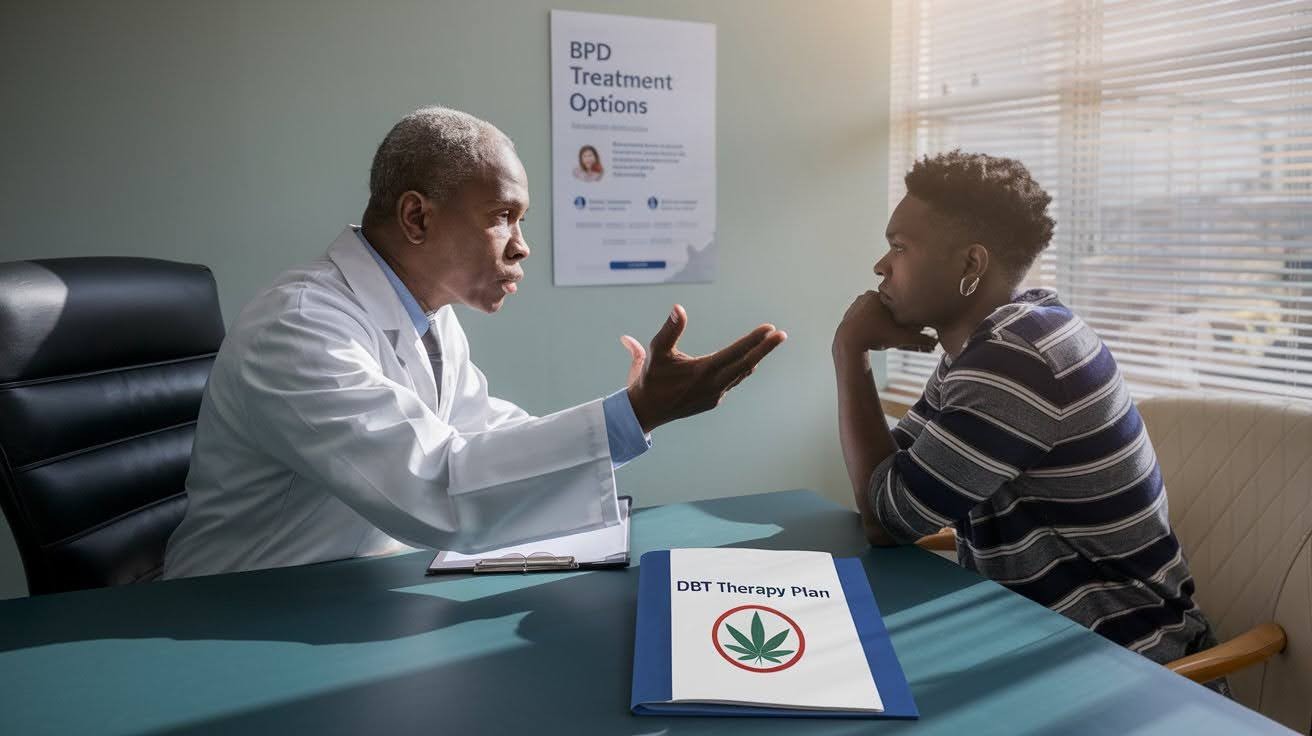
Mental health experts don’t recommend cannabis for BPD treatment. If you want to try it, a doctor must closely monitor you. This isn’t something to do alone. Focus on DBT and proven treatments first.
These work and they’re safe. More research is needed before anyone can say cannabis is safe for BPD. Bottom line: Stick with treatments that work. The risks aren’t worth it for most people.
Conclusion
The relationship between weed and BPD is complex and risky for most people. While some small studies show potential benefits, the dangers including psychosis, addiction, and worsening symptoms far outweigh any possible gains.
You now have the facts to make an informed decision. The science clearly shows that proven treatments like DBT remain your safest bet for managing BPD symptoms effectively.
Your mental health matters too much to gamble with experimental approaches. If you’re considering any changes to your treatment plan, always talk with your mental health team first.
Have questions about BPD treatment options? Share your thoughts in the comments below your experiences might help others facing similar decisions.
Stay safe, and remember: recovery is possible with the proper support.
Frequently Asked Questions
Can weed help with BPD symptoms?
Some small studies suggest potential benefits for anxiety and mood, but risks like psychosis and addiction outweigh possible gains for most BPD patients.
Is CBD safer than THC for people with BPD?
CBD appears safer than THC since it doesn’t cause highs or worsen paranoia, but long term safety data for BPD patients remains limited.
Does weed make BPD worse?
Yes, cannabis often worsens core BPD symptoms, including mood swings, paranoia, impulsivity, and can trigger psychosis in vulnerable individuals.
Should I talk to my doctor about weed and BPD?
Absolutely. Never self medicate with cannabis. Any consideration of medical cannabis requires close supervision from mental health professionals familiar with BPD.
What’s safer than weed for BPD treatment?
Dialectical Behavior Therapy (DBT), mindfulness practices, and psychiatric medications under medical care are proven safe and effective BPD treatments.

